Navigating the employee grievance procedure can often feel overwhelming, but it doesn't have to be. With the right understanding and clear steps in place, you can address your concerns effectively and ensure your voice is heard. This article will guide you through the essential components of writing a grievance letter, making the process smoother and more manageable. So, let's dive in and equip you with the tools you need to articulate your grievances with confidence!
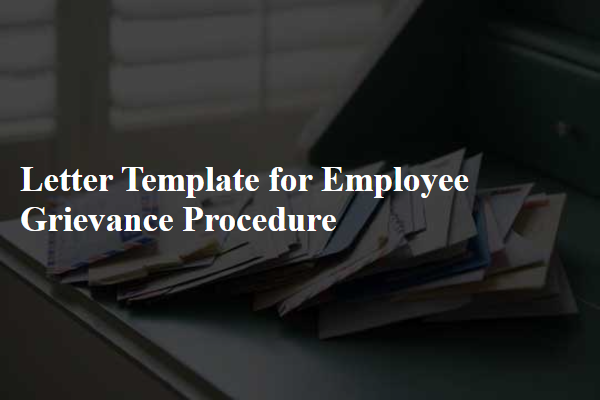
Employee's personal information
The employee grievance procedure is a structured process allowing individuals, such as employees of a corporation, to formally express concerns related to workplace issues or conflicts. Personal information includes the employee's full name, employee ID number, contact information (such as phone number and email), department designation, and position title within the organization. This information is crucial for accurately documenting grievances, ensuring a streamlined communication process during the resolution phase, and maintaining records for potential follow-up actions in accordance with workplace policies. The grievance form typically requires details about the specific issue or incident, such as the date it occurred, involved parties, and relevant context, aiming to provide clarity and context for human resources personnel or management review.
Detailed description of the grievance
An employee grievance may arise from various issues in the workplace, including interpersonal conflicts, unfair treatment, or unsafe conditions. For instance, a situation involving a lack of clear communication from a supervisor during a project at the corporate headquarters in New York, which resulted in confusion and decreased productivity among team members, may warrant detailed documentation. Employees may feel that their contributions are not recognized, especially if their work was instrumental in achieving a major milestone, such as a successful product launch. Additionally, grievances can stem from policies perceived as discriminatory or unjust, like a dress code enforced selectively at an office location, impacting morale and cohesion within the team. Providing a specific account with dates, witnesses, and involved departments enriches the description and aids in addressing the concern effectively.
Reference to relevant company policies
Employee grievance procedures are vital for maintaining workplace harmony and addressing issues effectively. Commonly outlined in employee handbooks, these procedures typically reference policies related to conflict resolution, discrimination, or harassment. For instance, the Equal Employment Opportunity Policy illustrates how to report discrimination incidents, while the Code of Conduct details acceptable behavior standards. Procedures often involve submitting a formal complaint to a designated HR representative, followed by an investigation that adheres to timelines stated in the policy. Employees may also be informed about their right to appeal the decisions made during this process, ensuring that concerns are addressed fairly and transparently within the organization's framework.
Desired resolution or outcome
The desired resolution for the employee grievance procedure typically involves a formal investigation into the reported issue, ensuring transparency throughout the process. Employees seek a resolution that includes corrective actions, such as mediation sessions with supervisors or Human Resources personnel. An outcome may also entail policy changes or additional training workshops to prevent future occurrences. Timely communication regarding the progress of the grievance is crucial to maintain trust. Employees generally appreciate a resolution that results in a safe, respectful work environment, reflecting the company's commitment to employee welfare. Additionally, a follow-up meeting to review the effectiveness of the resolution ensures ongoing support and reinforces a culture of open dialogue within the organization.
Contact information for further communication
An employee grievance procedure outlines a structured process designed for addressing workplace complaints effectively. Key steps include submitting a written grievance form to the immediate supervisor, mentioning specific incidents or behaviors that prompted the grievance, and providing supporting evidence. Employees should ensure to include their contact information, such as email address, phone number, and department name to facilitate ongoing communication throughout the resolution process. Following initial submission, a review meeting may be scheduled within seven business days, where the employee can present their concerns in detail. The designated HR representative will communicate results within ten business days to ensure clarity and transparency about outcomes or further steps.

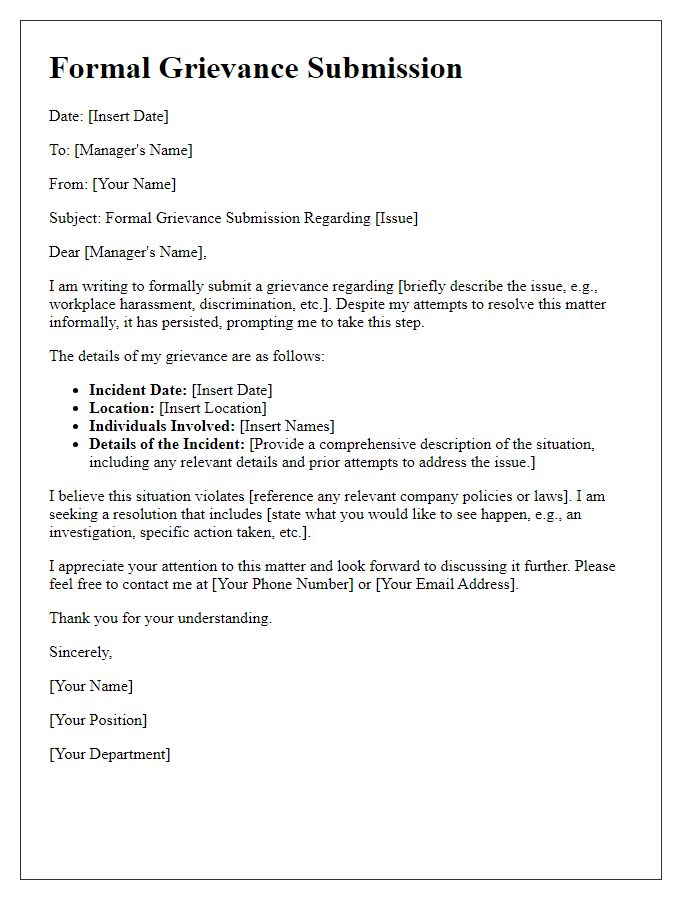
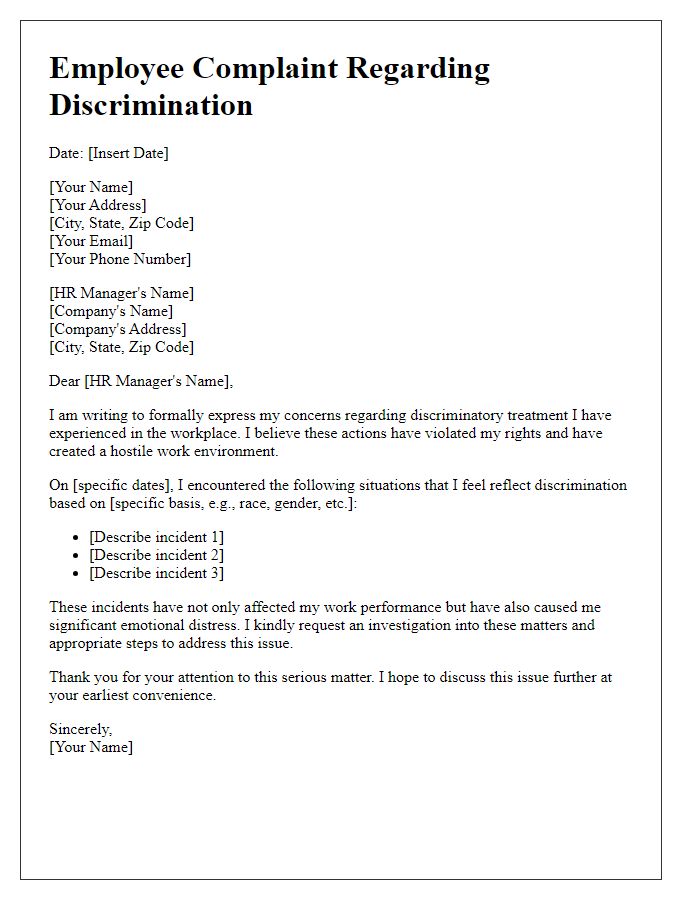
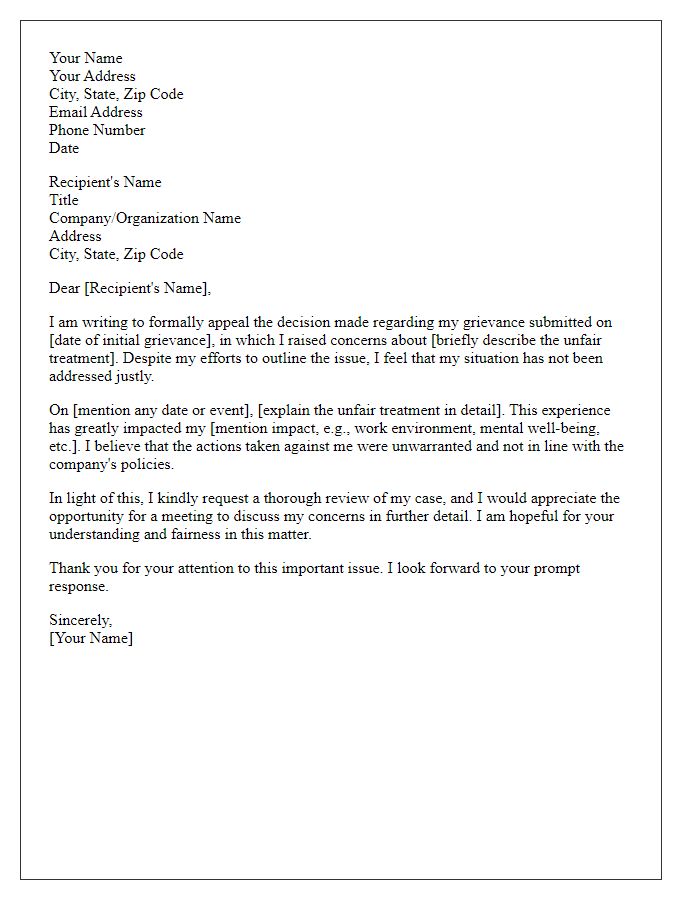
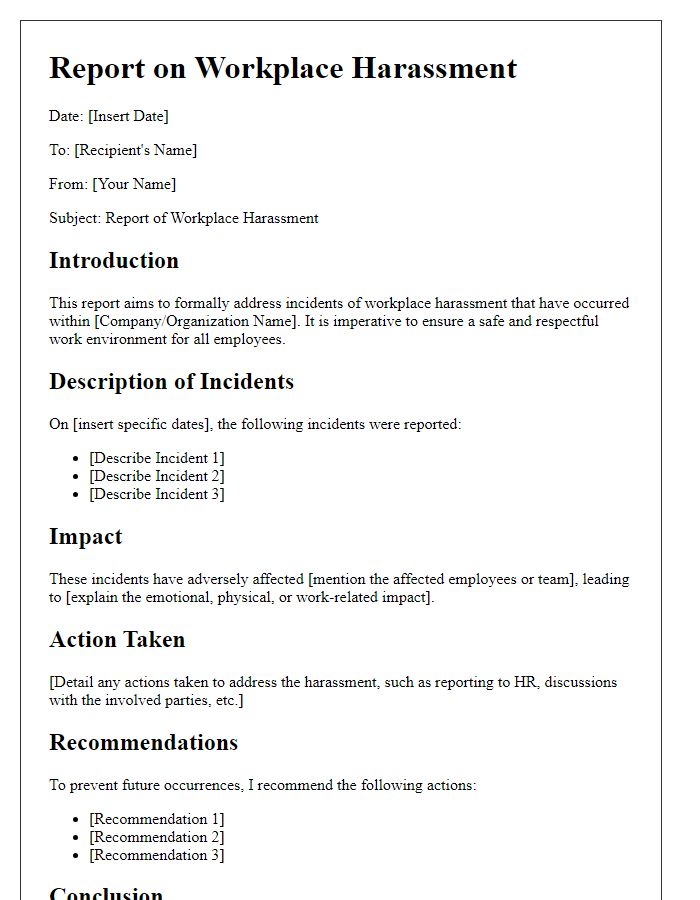
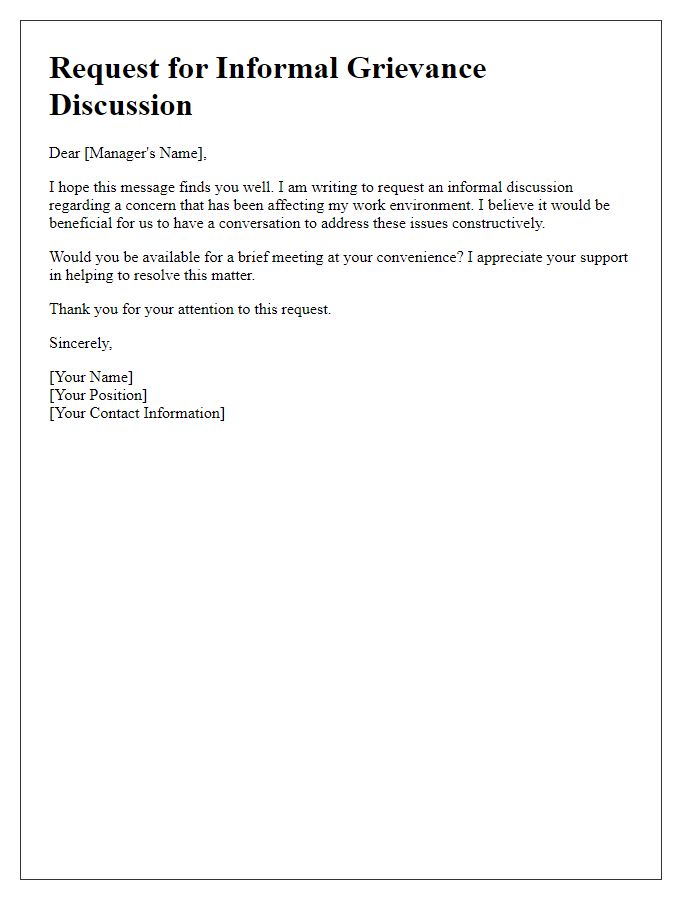
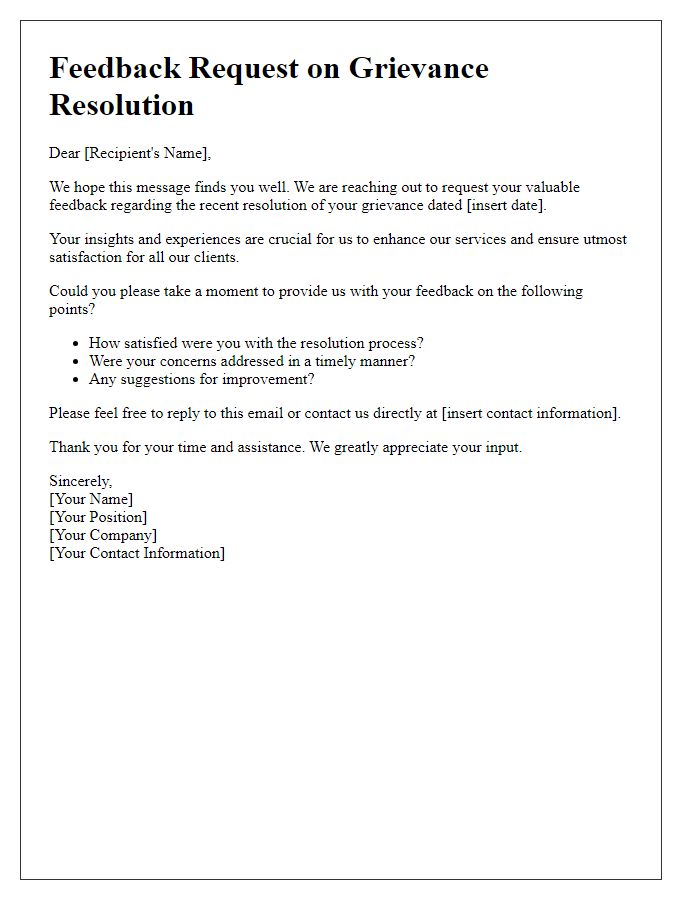
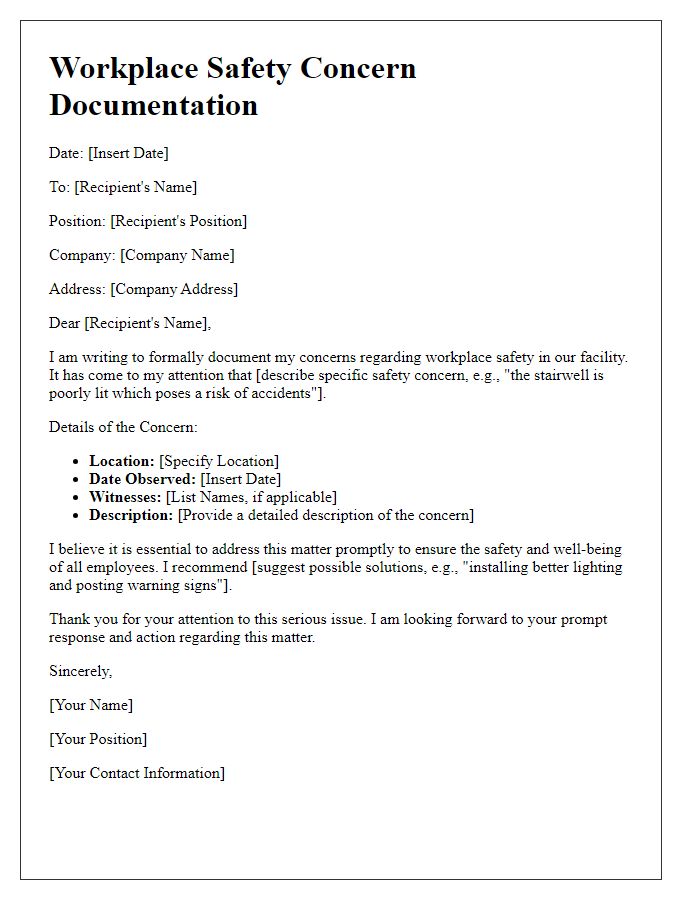
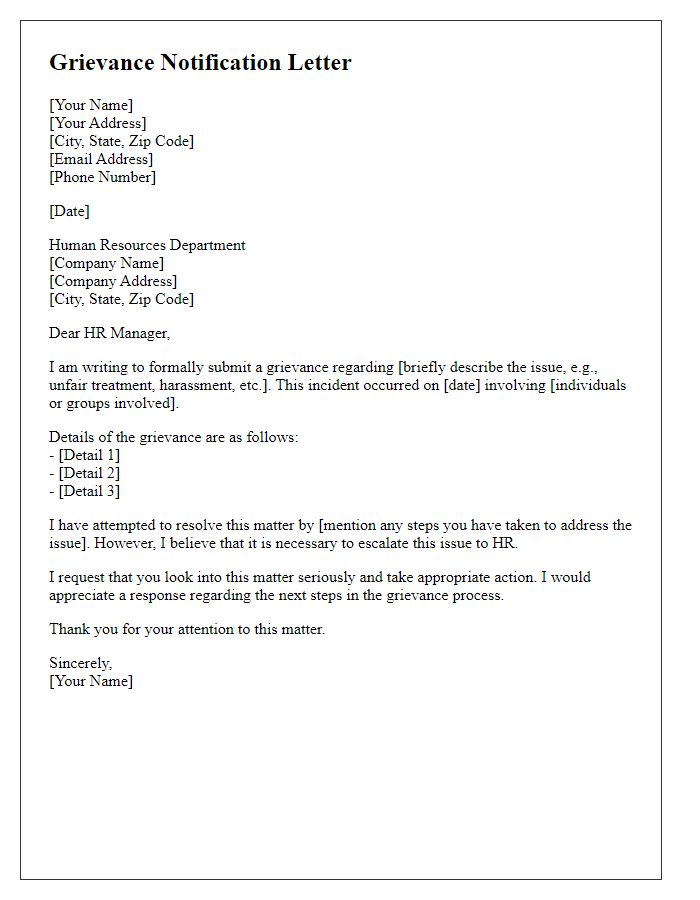
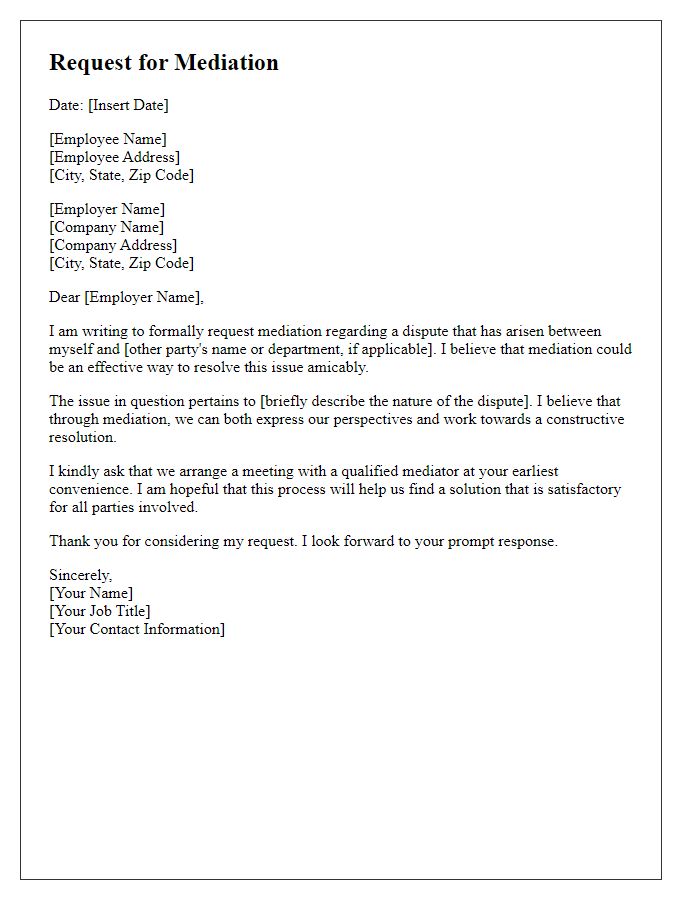
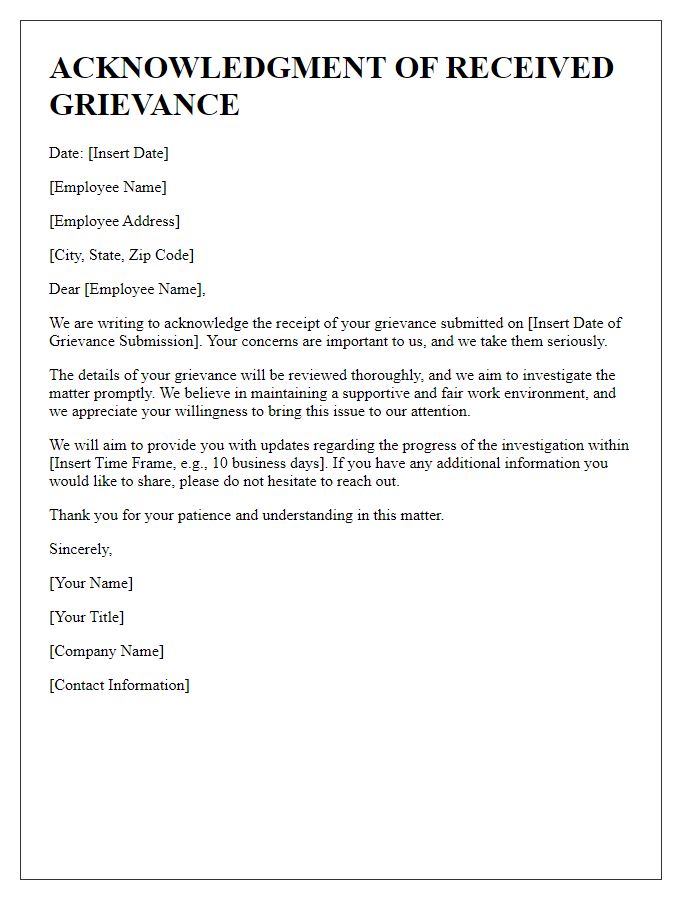


Comments